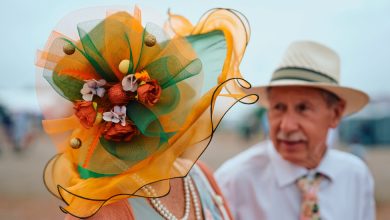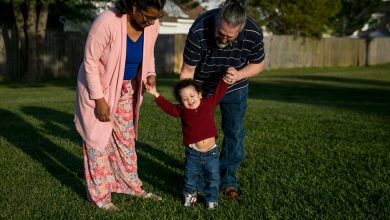Duane Eddy, Whose Twang Changed Rock ’n’ Roll, Dies at 86

Duane Eddy, who broke new ground in pop music in the 1950s with a reverberant, staccato style of guitar playing that became known as twang, died on Tuesday in Franklin, Tenn. He was 86.
The cause of his death, in a hospital, was complications of cancer, said his wife, Deed (Abbate) Eddy.
Mr. Eddy had tremendous success as a strictly instrumental recording artist in the late 1950s and ’60s, selling millions of records worldwide with growling, echo-laden hits like “Rebel Rouser” and “Forty Miles of Bad Road.” In the process, he played a major role in establishing electric guitar as the predominant musical instrument in rock ’n’ roll.
Mr. Eddy influenced a multitude of rock guitarists, including George Harrison, Jimi Hendrix and Bruce Springsteen, whose plunging guitar lines on “Born to Run” pay homage to Mr. Eddy’s muscular fretwork.
“Duane Eddy was the front guy, the first rock and roll guitar god,” John Fogerty, the founding lead singer and guitarist of Creedence Clearwater Revival, is quoted as saying on the Rhino Records website.
Mr. Eddy, who was self-taught, devised his rhythmic melodicism by playing the lead lines on his recordings on his guitar’s bass strings and by liberally using the vibrato bar. He never learned to read or score music, but he had a strong ear for pop idioms, including country, jazz, and rhythm and blues.
He also had a knack for studio experimentation; at one point he brought a 2,000-gallong water tank to a session and placed a speaker inside to simulate the effects of an echo chamber.
“I like exploring different textures on tracks in the studio, and different arrangement ideas,” Mr. Eddy said in a 2013 interview with Guitar Player magazine, which had honored him in 2004 with its Legend Award.
“For me,” Mr. Eddy went on, “it’s not just playing the instrument, it’s also making the record. I guess a better way of explaining it is that I don’t write or arrange songs as such. Instead, I think of it as writing or arranging records. My sound is the common denominator that pulls all the threads and knits them together.”
Easily recognizable, Mr. Eddy’s signature approach to the guitar accounted for 15 Top 40 pop hits from 1958 to 1963. “Because They’re Young,” a string-sweetened record, appeared on the soundtrack of the 1960 movie of the same name that starred Dick Clark and Tuesday Weld. More characteristic of Mr. Eddy’s gritty playing was “Cannonball,” a rollicking instrumental that reached the pop Top 20 in the U.S. and the Top 10 in Britain in 1958, and “(Dance With the) Guitar Man,” a 1962 hit that featured a female vocal group on the chorus. “The Ballad of Paladin,” a loping instrumental, was used as the theme for the CBS television series “Have Gun — Will Travel.”
Most of Mr. Eddy’s early recordings were made with the producer and songwriter Lee Hazlewood and released on the Philadelphia-based label Jamie Records. The Rebels, his backing band, boasted several members of the celebrated West Coast studio collective known as the Wrecking Crew including the guitarist Al Casey, the saxophonists Jim Horn and Plas Johnson, and the keyboard and bass player Larry Knechtel.
Most of Mr. Eddy’s albums from the late 1950s and early ’60s incorporated a version of the word “twang” in their titles.
Mr. Eddy was born on April 26, 1938, in Corning, N.Y., a small town in the south central part of the state, and started playing the guitar at the age of 5. His father, Lloyd, drove a bread truck and later managed a Safeway grocery store, and his mother, Alberta Evelyn (Granger) Eddy, managed the home. The family moved to Tucson, Ariz., when Duane was 13, and then to Phoenix, where he met Mr. Hazlewood and they began their musical partnership.
He acquired his first custom-made Chet Atkins-model Gretsch guitar when he was 16. He made his first recordings — as half of the duo Jimmy and Duane, with the pianist Jimmy Delbridge (who later recorded under the name Jimmy Dell) — the next year.
In 1957, Mr. Eddy began touring as a guitarist with Dick Clark’s Caravan of Stars, and he began releasing recordings under his own name shortly afterward.
Mr. Eddy and Mr. Hazlewood parted ways over a contract dispute in late 1960, though they later reunited to work on projects. Mr. Eddy signed with RCA shortly after.
The hit singles had stopped coming by the mid-1960s, but Mr. Eddy continued to release instrumental albums, including “Duane Does Dylan,” a collection of covers of songs written by Bob Dylan.
The rockabilly revival of the next decade gave rise to renewed interested in Mr. Eddy’s work. The 1970s also saw Mr. Eddy producing albums by Phil Everly and Waylon Jennings, whose widow, Jessi Colter, was married to Mr. Eddy from 1962 to 1968.
Mr. Eddy’s music was introduced to yet another generation of fans in the 1980s, when the British synth-pop group Art of Noise released an avant-disco reworking of his 1960 hit version of Henry Mancini’s “Peter Gunn,” with Mr. Eddy on lead guitar. It won a Grammy Award for best rock instrumental performance in 1987.
Mr. Eddy was inducted into the Rock & Roll Hall of Fame in 1994, the same year that his original hit recording of “Rebel Rouser” appeared in the movie “Forrest Gump.” “The Trembler,” a track he wrote with Ravi Shankar, was featured in Oliver Stone’s 1994 film, “Natural Born Killers.” He was also inducted into the Musicians Hall of Fame in Nashville in 2008.
In addition to his wife, Mr. Eddy is survived by three children, Linda Jones and Chris Eddy, from his first marriage, to Carol Puckett, and Jennifer Eddy Davis, from his marriage to Ms. Colter; a sister, Elaine Scarborough; five grandchildren; and nine great-grandchildren.
Unlike many instrumentalists, Mr. Eddy said, he never seriously considered expanding his musical résumé to include vocals.
Elaborating on the subject to Guitar Player in 2013, he recalled an interview with Conan O’Brien at which he was asked, “Duane, you’ve been in this business for many years now; what do you consider your greatest contribution to music?” He answered, “Not singing.”
“I never felt that I had a good voice for singing,” he went on. “When I was young, this frustrated me a lot, so I took it out on the guitar.”




